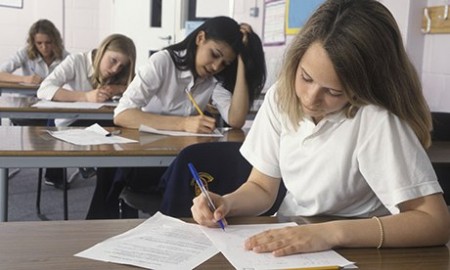The latest from the Guardianistas, and once again males are the problem that must be corrected. Boys are predators, girls are victims, and that is why they say we must reeducate boys to get that darn maleness out of them.
“[T]echnology has made sexualised images and extreme pornographical material more readily available than it ever has been.” There’s no such thing as a sexualized image (nor can people, who are inherently sexual beings, be ‘sexualized’), and the “extreme porn” lingo should be familiar to Gail Dines watchers.
The sentence that follows, “The ability to use those images to harass and harm must also have gone up too”, is designed to explain why governments need to censor porn — for the children!
A survey conducted by Girlguiding UK reveals the shocking truth about the sexual harassment and sexism that girls experience: not just that there is so much of it, but that it happens at school
High-profile cases in Rochdale and recent reports into gangs suggest that the sort of girls who are harrassed and abused are weak and friendless, girls whose chaotic homes lives leave them vulnerable. Yet, while law-abiding parents are reading these stories as if they are missives from Mars, harassment and sexism has become an everyday reality for their daughters.
What is new and most worrying about today’s report from the biggest girls’ youth organisation in the country, Girlguiding UK, is how prevalent sexism still is among children. While it is still fair to say that those at the margins of society are suffering the most egregious injustices – girls dragged into gangs and made to feel that rape is “normal”, refugees sold for sex to pay for their fare – here is a report that is difficult to explain away as marginal. Nearly 1,300 girls, some as young as seven, took part in the survey, and come from every part of the country and each social class.
Nearly three-quarters of the girls aged 13 and over admitted to suffering sexual harassment; 75% of girls aged 11-21 say sexism affects their confidence and future aspirations. Even more shocking, perhaps, is the fact that much of the harassment – from sexual jokes or taunts, to unwanted sexual attention, touching or images that made them uncomfortable – happens at school; the last place in the world many parents, sick with fear over the new dangers of the internet or the increased sexualisation of music videos, would look.
Nearly all these girls believe they are judged for their looks rather than ability, and half are unhappy with those all-important looks. More than a third of girls over the age of seven have been made to feel stupid because of their gender. One in five primary-school girls have been on a diet. Whatever you think about the body mass index, isn’t pre-puberty too young to stop eating?
None of this should be surprising, of course. About a fifth of the 50,000 entries to the Everyday Sexism Project so far come from young girls. Just look at the website to find examples from the tsk-inducing to the heartbreaking. Today Lily writes: “Teenage boy – maybe 16/17? – calling me a tosser and a slut as I walked down my local high street. I was nine.”
Why is this happening? When the report into gangs and sexual attitudes came out earlier this week, deputy children’s commissioner Sue Berelowitz identified a “malaise” in society, with universal access to pornography by teenage boys and “sexting” partly to blame.
Girls themselves blame the media for presenting an unattainable image to aspire to of the ultra-thin or uber-curvy, with just as many believing that boys expect them to look the same as the often airbrushed or enhanced women they see in magazines and on television. Others, such as the umbrella group End Violence Against Women and Imkaan for black feminists, argue that music videos undermine women and present a highly sexualised, racially charged diet that acts as a misleading soundtrack to their lives.
I’m not sure any one of these reasons is to blame. Sexism – in terms of the way society treats the sexes differently – has been around for far longer even than those things. Of course, technology has made sexualised images and extreme pornographical material more readily available than it ever has been. The ability to use those images to harass and harm must also have gone up too. But the web has also raised awareness of the issue – in a way that the generation who gave birth to today’s young girls possibly did not expect. When Lewis Collins, the actor who sadly died on Thursday, provided our first crush, how many of us stopped to ask where all the serious female characters were on the Professionals, in the way young women do now? The question of why such sexism persists might be harder to answer than pointing the finger at Robin Thicke or online trolls, but the question of what should be done about it is perhaps easier.
Given that so much of this is experienced in schools, shouldn’t the first port of call be the classrooms where children are meant to learn about sex and relationships? Michael Gove has made it clear that lessons should focus on the birds and the bees and not the potential quagmire that lurks beneath sexual relations for young people. He has said that those who learn Latin are far less likely to have sex, something I’d really like to see evidence for.
The curriculum for sex education in schools hasn’t changed in 14 years and makes little attempt to include the internet. Best practice suggests that some schools include it anyway, but if it’s not mandatory, it’s often easy to overlook. Girlguiding UK is the sort of association that Gove and the coalition should love. It encourages doing good deeds and self-reliance. This report should lead to a lesson for Gove: sort out sex education for our young people, boys as well as girls.







When it comes to porn, prostitution and all other forms of sex commerce, The Guardian is the most reliably unreliable source this side of Focus on the Family.